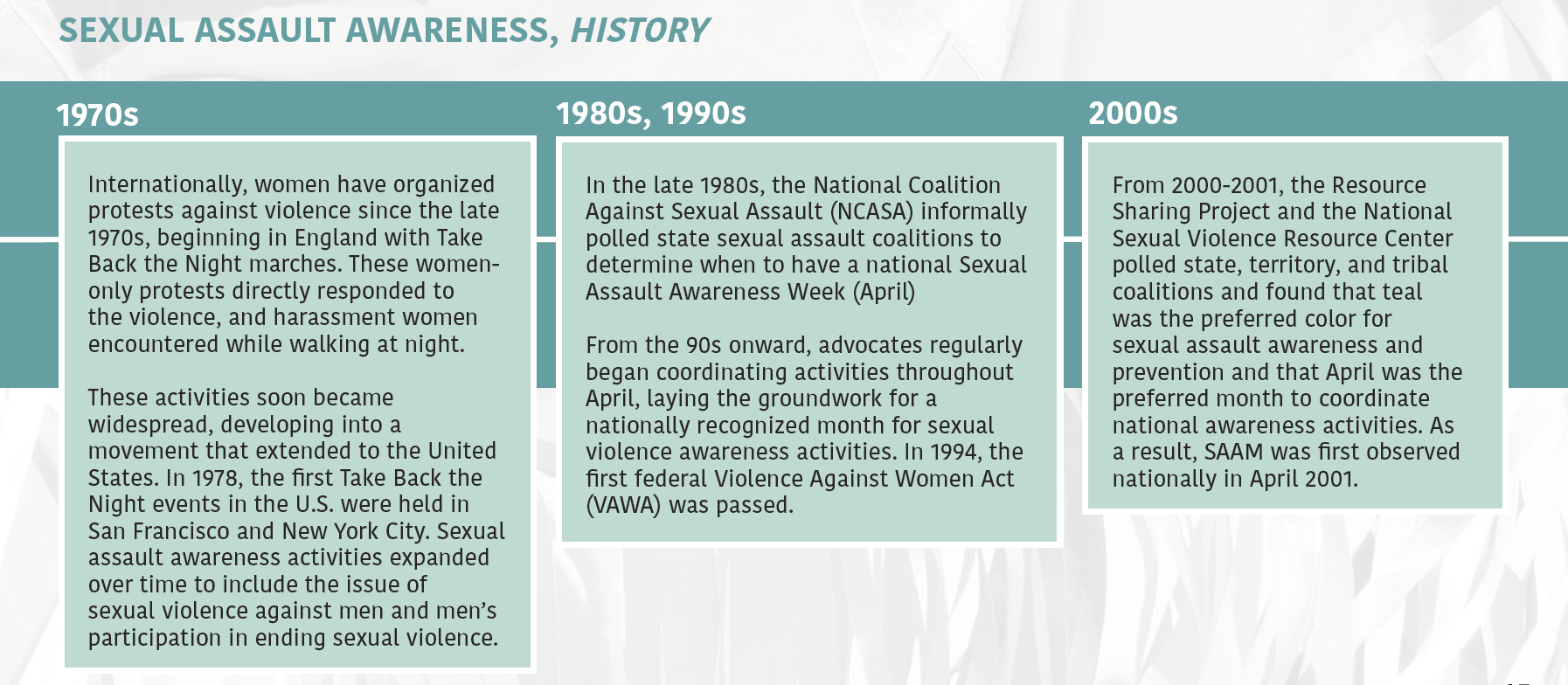Sexual Assault Awareness Month (SAAM) 2023
April is Sexual Assault Awareness Month.
Sexual Assault Awareness Month (SAAM) was first observed in 2001, over twenty years ago. Thousands of Native women and children have suffered and continue to suffer rape and sexual abuse due to U.S. laws and government policies regarding American Indian Nations. Thousands have suffered sexual abuse by those in positions of control over Native women and children through government authorization or contracts, such as schools operated by religious institutions and the military.
This abuse is documented by the legal actions and stories of survivors who, in their struggle for justice, faced denial from government agencies and religious institutions. While these heroines are often supported by their communities, many times, they stand alone.
Rape and sexual abuse are intertwined with the colonization of Indigenous peoples and the formation and development of the United States. This connection, when acknowledged, is often thought of as the past—a time long ago.
“The connection between sexual abuse of Native women and colonization remains hidden from the public,” said Lucy Simpson, Dine’, Executive Director, NIWRC. “We must understand the systemic and structural foundation of the statistic that 1 of 3 Native women will be raped in her lifetime.”
The government infrastructure—federal laws, policies, and institutions—targeting and permitting sexual abuse of Native women in the 1800s exists into 2023. Removing these inequalities requires a shift in understanding and advancing changes to end sexual violence.
Our cultures are centered around the sacredness of women and the value of respect. Historically, sexual violence in our communities was rare, as such acts were punished quickly and severely. We must renew our efforts to end sexual violence and reclaim the honor of Indigenous peoples.
We will not tolerate sexual violence in Native communities. We shall proactively hold perpetrators and systems accountable. Supporting Indigenous survivors of sexual violence is central to ending such violence. In 2023, it is important to reach beyond individual violence to raise awareness of the social permissions that uphold the system that allows sexual violence to happen. This SAAM, we uplift Native women who struggled against systemic and structural permissions for such abuse. Their efforts to achieve justice in their individual cases are inspiring and courageous. They challenged systemic barriers, policies, and laws permitting such abuse to make all women safer.
During Sexual Assault Awareness Month, we support Indigenous survivors of sexual violence and advocates.

Sexual assault is any type of sexual activity or contact you do not consent to. It may occur within an intimate relationship as a tactic of domestic or dating violence or at the hands of strangers or other family members. Sexual assault is a type of sexual violence rooted in power and control, a way for perpetrators to instill fear into victims. Forced sexual acts cause significant trauma and harm people physically, spiritually, mentally, and emotionally.
Types of Sexual Assault
- Harassing or calling you degrading sexual names.
- Fondling, grabbing, or pinching the sexual parts of your body.
- Constantly pressuring you to have sex when you don’t want to have sex.
- Forcing you to have sex or engage in unwanted sexual activity (ex. rape, anal rape, forced masturbation, or forced oral sex).
- Drugging so you are unable to consent to sexual activity.
- Using weapons or other objects to hurt the sexual and other parts of your body.






